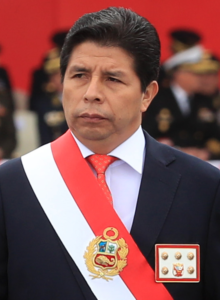
Noam Chomsky
Neoliberalism has reigned supreme as an economic philosophy for nearly half a century. But neoliberal policies have wreaked havoc around the world, reversing most gains made under managed capitalism after the end of the Second World War. Neoliberalism works only for the rich and the huge corporations. But the failures of neoliberalism extend beyond economics. They spread into politics as the processes of social collapse bring into play menacing forces with promises of a return to lost glory. This is the basic thrust of neofascist movements and parties in today’s world, and it is neoliberalism that has created the conditions for the resurgence of right-wing extremism, as Noam Chomsky explains in the exclusive interview below for Truthout. Meanwhile, protests have become far more widespread in the era of late capitalism, so the struggle for an alternative world is very much alive indeed!
Chomsky is institute professor emeritus in the Department of Linguistics and Philosophy at MIT and laureate professor of linguistics and Agnese Nelms Haury Chair in the Program in Environment and Social Justice at the University of Arizona. One of the world’s most-cited scholars and a public intellectual regarded by millions of people as a national and international treasure, Chomsky has published more than 150 books in linguistics, political and social thought, political economy, media studies, U.S. foreign policy and world affairs. His latest books are Illegitimate Authority: Facing the Challenges of Our Time (forthcoming; with C. J. Polychroniou), The Secrets of Words (with Andrea Moro; MIT Press, 2022); The Withdrawal: Iraq, Libya, Afghanistan, and the Fragility of U.S. Power (with Vijay Prashad; The New Press, 2022); and The Precipice: Neoliberalism, the Pandemic and the Urgent Need for Social Change (with C.J. Polychroniou; Haymarket Books, 2021).
C. J. Polychroniou: Noam, since neoliberal policies were implemented more than 40 years ago, they have been responsible for increasing rates of inequality, destroying social infrastructure, and causing hopelessness and social malaise. However, it has also become evident that neoliberal social and economic policies are breeding grounds for right-wing radicalization and the resurgence of political authoritarianism. Of course, we know that there is an inherent clash between democracy and capitalism, but there is some clear evidence that neofascism emerges from neoliberal capitalism. Assuming that you agree with this claim, what’s the actual connection between neoliberalism and neofascism?
Noam Chomsky: The connection is drawn clearly in the first two sentences of the question. One consequence of the neoliberal social-economic policies is collapse of the social order, yielding a breeding ground for extremism, violence hatred, search for scapegoats — and fertile terrain for authoritarian figures who can posture as the savior. And we’re on the road to a form of neo-fascism.
The Britannica defines neoliberalism as an “ideology and policy model that emphasizes the value of free market competition,” with “minimal state intervention.” That is the conventional picture. Reality is different. The actual policy model threw open the doors for the masters of the economy, who also dominate the state, to seek profit and power with few constraints. In brief, unconstrained class war.
One component of the policies was a form of globalization that combines extreme protectionism for the masters with search for the cheapest labor and worst working conditions so as to maximize profit, leaving decaying rust belts at home. These are policy choices, not economic necessity. The labor movement, joined by Congress’s now defunct research bureau, proposed alternatives that could have benefited working people here and abroad, but they were dismissed without discussion as Clinton rammed through the form of globalization preferred by those conducting the class war.
A related consequence of “really existing neoliberalism” was rapid financialization of the economy enabling riskless scams for quick profits — riskless because the powerful state that intervenes radically in the market to provide extreme protections in trade agreements does the same to rescue the masters if something goes wrong. The result, beginning with Reagan, is what economists Robert Pollin and Gerald Epstein call a “bailout economy,” enabling the neoliberal class war to proceed without the risk of market punishment for failure.
The “free market” is not missing from the picture. Capital is “free” to exploit and destroy with abandon, as it has been doing, including — we should not forget — destroying the prospects for organized human life. And working people are “free” to try to survive somehow with real wages stagnating, benefits declining and work being reshaped to create a growing precariat.
The class war took off, very naturally, with an attack on labor unions, the prime means of defense for working people. The first acts of Reagan and Thatcher were vigorous assaults on unions, an invitation to the corporate sector to join in and move beyond, often in ways that are technically illegal, but that is of no concern to the neoliberal state they dominate.
The reigning ideology was expressed lucidly by Margaret Thatcher as the class war was launched: There is no such thing as society, and people should stop whining about “society” coming to their rescue. In her immortal words, “‘I am homeless, the Government must house me!’ and so they are casting their problems on society and who is society? There is no such thing! There are individual men and women and there are families, and no government can do anything except through people and people look to themselves first.”
Thatcher and her associates surely knew very well that there is a very rich and powerful society for the masters, not only the nanny state that races to their rescue when they are in need but also an elaborate network of trade associations, chambers of commerce, lobbying organizations, think tanks, and more. But those less privileged must “look to themselves.”
The neoliberal class war has been a grand success for the designers. As we’ve discussed, one indication is the transfer of some $50 trillion to the pockets of the top 1 percent, mostly to a fraction of them. no slight victory.
Other achievements are “hopelessness and social malaise,” with nowhere to turn. The Democrats abandoned the working class to their class enemy by the ‘70s, becoming a party of affluent professionals and Wall Street donors. In England, Jeremy Corbyn came close to reversing the decline of the Labour Party to “Thatcher lite.” The British establishment, across the board, mobilized in force and climbed deep into the gutter to crush his effort to create an authentic participatory party devoted to the interests of working people and the poor. An intolerable affront to good order. In the U.S., Bernie Sanders has fared somewhat better, but has not been able to break the hold of Clintonite party management. In Europe, the traditional parties of the left have virtually disappeared.
In the midterm elections in the U.S., the Democrats lost even more of the white working class than before, a consequence of the unwillingness of party managers to campaign on class issues that a moderate left party could have brought to the fore.
The ground is well prepared for the rise of neofascism to fill the void left by unremitting class war and capitulation of the mainstream political institutions that might have combatted the plague.
The term “class war” is by now insufficient. It’s true that the masters of the economy and their servants in the political system have been engaged in a particularly savage form of class war for the past 40 years, but the targets go beyond the usual victims, now extending even to the perpetrators themselves. As the class war intensifies, the basic logic of capitalism manifests itself with brutal clarity: We have to maximize profit and power even though we know we are racing to suicide by destroying the environment that sustains life, not sparing ourselves and our families.
What’s happening calls to mind an often repeated tale on how to catch a monkey. Cut a hole in a coconut of just the right size for a monkey to insert its paw and put some delectable morsel inside. The monkey will reach in to grab the food but will then be unable to extricate its clenched paw and will starve to death. That’s us, at least the ones running the sad show.
Our leaders, with their similarly clenched paws, are pursuing their suicidal vocation relentlessly. At the state level, Republicans are introducing “Energy Discrimination Elimination” legislation to ban even release of information on investment in fossil fuel companies. That’s unfair persecution of decent folks who are just trying to profit by destroying the prospects for human life, adopting good capitalist logic.
To take one recent example, Republican attorneys general have called on the Federal Energy Regulatory Commission to keep asset managers from purchasing shares in U.S. utility companies if the companies are involved in programs to reduce emissions — that is, to save us all from destruction.
The champion of the lot, BlackRock CEO Larry Fink, calls for investment in fossil fuels for many years ahead, while showing that he is a good citizen by welcoming opportunities to invest in still fanciful ways to get rid of the poisons that are produced and even in green energy — as long as profits are guaranteed to be high.
In short, instead of devoting resources to escape from catastrophe, we must bribe the very rich to induce them to lend a hand in doing so.
The lessons, stark and clear, are helping to invigorate popular movements that are seeking to escape from the shambles of capitalist logic that shine through with brilliant clarity as the neoliberal war against all reaches its latest stages of tragicomedy.
That is the bright and hopeful side of the emerging social order.
With the rise of Donald Trump to power, white supremacy and authoritarianism returned to mainstream politics. But isn’t it the case that the U.S. was never immune to fascism?
What do we mean by “fascism”? We have to distinguish what’s happening in the streets, very visibly, from ideology and policy, more remote from immediate inspection. Fascism in the streets is Mussolini’s Blackshirts and Hitler’s Brownshirts: violent, brutal, destructive. The U.S. has surely never been immune from that. The sordid record of “Indian removal” and slavery mutating to Jim Crow needs no recounting here.
A peak period of “street-fascism” in this sense just preceded Mussolini’s March on Rome. The postwar Wilson-Palmer, post-WWI “red scare” was the most vicious period of violent repression in U.S. history, apart from the two original sins. The shocking story is recounted in vivid detail in Adam Hochschild’s penetrating study American Midnight.
As usual, Black people suffered the most, including major massacres (Tulsa and others) and a hideous record of lynchings and other atrocities. Immigrants were another target in a wave of fanatic “Americanism” and fear of Bolshevism. Hundreds of “subversives” were deported. The lively Socialist Party was virtually destroyed and never recovered. Labor was decimated, not only the Wobblies but well beyond, including vicious strike-breaking in the name of patriotism and defense against the “reds.”
The level of lunacy finally became so outlandish that it self-destructed. Attorney-General Palmer and his sidekick J. Edgar Hoover predicted an insurrection led by Bolsheviks on May Day 1920, with feverish warnings and mobilization of police, army and vigilantes. The day passed with a few picnics. Widespread ridicule and wish for “normalcy” brought an end to the madness.
Not without a residue. As Hochschild observes, progressive options for American society suffered a severe blow. A very different country could have emerged. What took place was street fascism with a vengeance.
Turning to ideology and policy, the great Veblenite political economist Robert Brady 80 years ago argued that the whole industrial capitalist world was moving towards one or another form of fascism, with powerful state control of the economy and social life. On a separate dimension, the systems differed sharply with regard to public influence over policy (functioning political democracy).
Such themes were not uncommon in those years, and to a limited extent beyond both in left and right circles.
The issue becomes mostly moot with the shift from the regulated capitalism of the postwar decades to the neoliberal assault, which forcefully reinstitutes Adam Smith’s conception that the masters of the economy are the principal architects of government policy and design it to protect their interests. Increasingly in the course of neoliberal class war, unaccountable concentrations of private power control both the economy and the political domain.
The result is a general sense — not mistaken — that the government is not serving us, but rather someone else. The doctrinal system, also largely in the hands of the same concentrations of private power, deflects attention away from the workings of power, opening the door to what are termed “conspiracy theories,” usually founded on some particles of evidence: the Great Replacement, liberal elites, Jews, other familiar concoctions. That in turn engenders “street fascism,” drawing on poisonous undercurrents that have never been suppressed and that can easily be tapped by unscrupulous demagogues. The scale and character is by now no small threat to what remains of functioning democracy after the battering of the current era.
Some are arguing that we live in a historic age of protests. Indeed, virtually every region in the world has seen a sharp increase of protest movements over the last 15 years. Why have political protests become more widespread and more frequent in the age of late neoliberalism? Moreover, how do they compare to the protest movements of the 1960s?
The protests have many different roots. The trucker’s strike that almost brought Brazil to a halt protesting the defeat of the neo-fascist Bolsonaro in the October election had some resemblance to January 6 in Washington, and may be reenacted, some fear, on the day of the inauguration of the elected President Lula da Silva on January 1.
But such protests as these have nothing in common with the remarkable uprising in Iran instigated by the death in police custody of Jina Mahsa Amini. The uprising is led by young people, mostly young women, though it is bringing in much broader sectors. The immediate goal is overturning the rigid controls on women’s attire and behavior, though the protesters have gone well beyond, sometimes as far as calling for overthrow of the harsh clerical regime. The protestors have won some victories. The regime has indicated that the Morality Police will be disbanded, though some doubt the substance of the announcement, and it barely reaches the demands of the courageous resistance. Other protests have their own particularities.
Insofar as there is a common thread, it is the breakdown of social order generally in the past decades. Commonalities with ‘60s protest movements seem to me thin.
Whatever the connection may be between neoliberalism and social unrest, it is nonetheless clear that socialism is still struggling to gain popularity with citizens in most parts of the world. Why is that? Is it the legacy of “actually existing socialism” that hinders progress toward a socialist future?
As with fascism, the first question is what we mean by “socialism.” Broadly speaking the term used to refer to social ownership of the means of production, with worker control of enterprises. “Actually existing socialism” had virtually no resemblance to those ideals. In western usage “socialism” has come to mean something like welfare state capitalism, covering a range of options.
Such initiatives have often been suppressed by violence. The red scare mentioned earlier is one example, with long-lasting effects. Not long after, the Great Depression and World War evoked waves of radical democracy throughout much of the world. A primary task of the victors was to suppress them, beginning with the U.S.-U.K. invasion of Italy, disbanding the partisan-led worker- and peasant-based socialist initiatives and restoring the traditional order, including fascist collaborators. The pattern was followed elsewhere in various ways, sometimes with extreme violence. Russia imposed its iron rule in its own domains. In the Third World, repression of similar tendencies was far more brutal, not excluding church-based initiatives, crushed by U.S. violence in Latin America, where the U.S. army officially claims credit for having helped to defeat liberation theology.
Are the basic ideas unpopular, when extricated from the imagery of hostile propaganda? There is good reason to suspect that they are hardly below the surface and can burst forth when opportunities arise and are exploited.
Copyright © Truthout. May not be reprinted without permission.
C.J. Polychroniou is a political scientist/political economist, author, and journalist who has taught and worked in numerous universities and research centers in Europe and the United States. Currently, his main research interests are in U.S. politics and the political economy of the United States, European economic integration, globalization, climate change and environmental economics, and the deconstruction of neoliberalism’s politico-economic project. He is a regular contributor to Truthout as well as a member of Truthout’s Public Intellectual Project. He has published scores of books and over 1,000 articles which have appeared in a variety of journals, magazines, newspapers and popular news websites. Many of his publications have been translated into a multitude of different languages, including Arabic, Chinese, Croatian, Dutch, French, German, Greek, Italian, Japanese, Portuguese, Russian, Spanish and Turkish. His latest books are Optimism Over Despair: Noam Chomsky On Capitalism, Empire, and Social Change (2017); Climate Crisis and the Global Green New Deal: The Political Economy of Saving the Planet (with Noam Chomsky and Robert Pollin as primary authors, 2020); The Precipice: Neoliberalism, the Pandemic, and the Urgent Need for Radical Change (an anthology of interviews with Noam Chomsky, 2021); and Economics and the Left: Interviews with Progressive Economists (2021).




